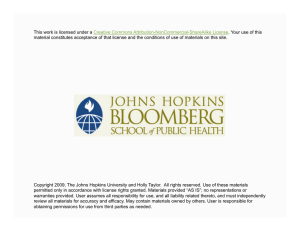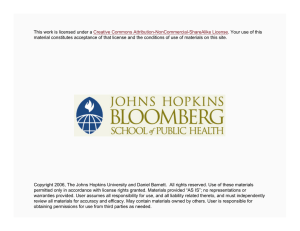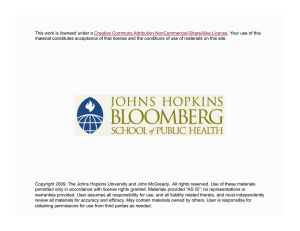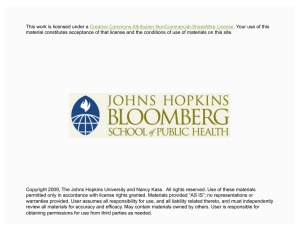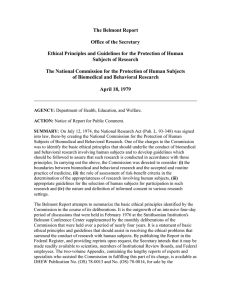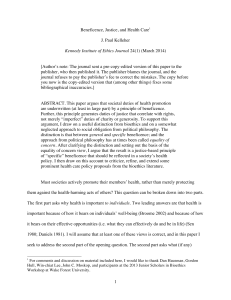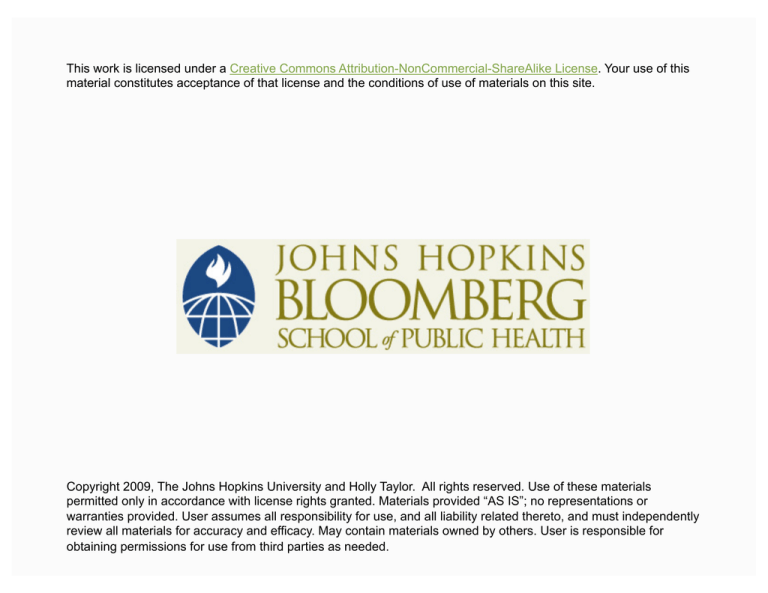
This work is licensed under a Creative Commons Attribution-NonCommercial-ShareAlike License. Your use of this
material constitutes acceptance of that license and the conditions of use of materials on this site.
Copyright 2009, The Johns Hopkins University and Holly Taylor. All rights reserved. Use of these materials
permitted only in accordance with license rights granted. Materials provided “AS IS”; no representations or
warranties provided. User assumes all responsibility for use, and all liability related thereto, and must independently
review all materials for accuracy and efficacy. May contain materials owned by others. User is responsible for
obtaining permissions for use from third parties as needed.
Study Design
Holly Taylor, PhD, MPH
The Johns Hopkins Berman Institute of Bioethics
Overview
Ethical theory
- Principle of beneficence
- Principles specific to study design
Study design
- Types of trials
- Oversight
3
Section A
Ethics Review
Ethical Theory: Review
Deontology: An action is right (or wrong) in and of itself
- You want your physician to given you the treatment that you
and your physician decide is best for you
Utilitarianism: An action is right that leads to the greatest balance
of good over bad consequences
- One’s chances of getting the best treatment is highest if one
lives in a society where treatment choices are governed by
well-designed trials
Source: Goodman. (2004).
5
Principle of Beneficence: Review
Beneficence
- Moral requirements
Do no harm
Maximize benefits/minimize harms
- Practical applications
Study design
Risk/benefit ratio
Source: Belmont Report. (1978).
6
Ethical Principles: Study Design
Legitimate research question
- Has it already been answered?
Valid design and analytic plan to address the research question
- Is RCT best design?
Independent review
- Peer review
Source: Joffee and Troug. (2008).
7
Ethical Principles: Study Design
Design executed as described in approved protocol
- Oversight
Study findings must be reported completely and promptly
- During trial
- After trial
Source: Joffee and Troug. (2008).
8

